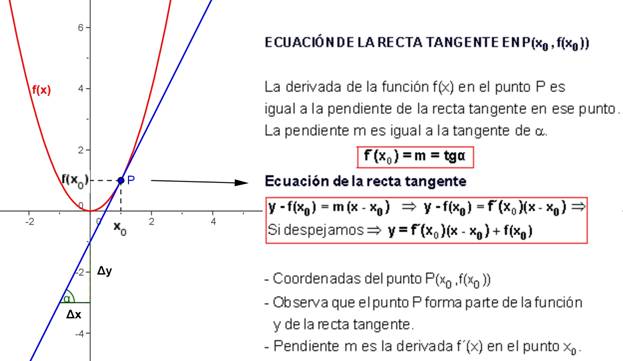ANDREW JACKSON VETO OF MAYSVILLE ROAD BILL (1830) ALTHOUGH
10 ANDREW LAIRD THE ARS POETICA THE TITLE ‘ARS2 ANDREWS COUNTY TAX OFFICE ROBIN HARPER TAC INSTALLMENT
3 Introducing the Spiritual Pathways This Paper by Andrew
4 ANDREW CARNEGIE THE BUGABOO OF TRUSTS THE NORTH
4 UNIVERSITY OF ST ANDREWS HONOURS DEGREE CLASSIFICATION (ACADEMIC
66 1 L ANDREWS AND G C PIMENTEL “THE
Andrew Jackson, "Veto of Maysville Road Bill" (1830)
Andrew Jackson, "Veto of Maysville Road Bill" (1830)
Although Jackson vetoed a bill in 1830 providing for a federal
government subscription of stock, in the amount of $150,000, in a
company that proposed to build a sixty-mile road near Maysville,
Kentucky. Jackson’s veto message offered some thoughtful
commentary on the question of the relationship between the federal
government and the states and on the role of government in society
more generally. As you read, consider how Jackson defends his
veto of the Maysville Road Bill. And, think about how Jackson’s
veto reflected the ideology of the Democratic Party at the time.
To the House of Representatives:
Gentlemen, I have
maturely considered the bill proposing to authorize a "subscription
of stock in the Maysville...Road Company," and now return the
same to the House of Representatives, in which it originated, with my
objections to its passage...
Such grants [of money by the federal government] have always been [passed] under the control of the general principle that the works which might be thus aided should be "of a general, not local, national, not State," character. A disregard of this distinction would of necessity lead to the subversion of the federal system.... I am not able to view [the Maysville Road Bill] in any other light than as a measure of purely local character.... It has no connection with any established system of improvements; [and] is exclusively within the limits of a State [Kentucky]....
...As great as this object [goal of internal improvements]
undoubtedly is, it is not the only one which demands the fostering
care of the government. The preservation and success of the
republican principle rest with us. To elevate its character and its
influence rank among our most important duties, and the best means to
accomplish this desirable end are those which will rivet the
attachment of our citizens to the Government of their choice by the
comparative lightness of their public burthens [burdens] and by the
attraction which the superior success of its operations will present
to the admiration and respect of the world. Through the favor of an
overruling and indulgent Providence our
country is blessed with
a general prosperity and our citizens exempted from the pressure of
taxation, which other less favored portions of the human family are
obliged to bear; yet it is true that many of the taxes collected from
our citizens through the medium of imposts have for a considerable
period been onerous. In many particulars these taxes have borne
severely upon the laboring and less prosperous classes of the
community, being imposed on the necessaries of life, and this, too,
in cases where the burden was not relieved by the consciousness that
it would ultimately contribute to make us independent of foreign
nation articles of prime necessity by the encouragement of growth and
manufacture at home. They have been cheerfully borne because they
were thought to be necessary to the support of government and the
payments of debts unavoidably incurred in the acquisition and
maintenance of our national rights and liberties. But have we a right
to calculate on the same cheerful acquiescence when it is known that
the necessity for their continuance would cease were it not for
irregular, improvident, and unequal appropriations of public
funds?...
...How gratifying the effect of
presenting to the world the sublime spectacle of a Republic of more
than 12,000,000 happy people, in the fifty-fourth year of her
existence, after having passed through two protracted wars one
for the acquisition and the other for the maintenance of liberty
free from debt and all her immense resources unfettered! What a
salutary influence would not such an exhibition exercise upon the
cause of liberal principles and free government throughout the world!
Would we not find ourselves in its effect an additional guarantee
that our political institutions will be transmitted to the most
remote posterity without decay? A course of policy destined to
witness events
like these cannot be benefited by a legislation
which tolerates a scramble for appropriations that have no relation
to any general system of improvement, and whose good effects must of
necessity be very limited...
...If different
impressions are entertained in any quarter; if it is expected that
the people of this country, reckless of their constitutional
obligations, will prefer their local interest to the principles of
the Union...indeed has the world but little to hope from the example
of free government. When an honest observance of constitutional
compacts cannot be obtained from communities like ours, it need not
be anticipated elsewhere... and the degrading truth that man is unfit
for self -government [will be] admitted. And this will be the case if
expediency be made a rule of construction in interpreting the
Constitution. Power in no government could desire a better shield for
the insidious advances which it is ever ready to make upon the checks
that are designed to restrain its action...
66 BOLDMERE ROAD SUTTON COLDFIELD B73 5TJ 01213546411 ENQUIRIESANDREWMARTINCOUK
A RESPONSE ANDREW HOSEASON – 24900 2 KINGS
ANDREW BALDWIN CHAPTER 13 CHAIN PRICE AND VOLUME AGGREGATES
Tags: (1830) although, (1830), maysville, andrew, although, jackson
- FOTO FOTO FOTOFOTO AMABASCIATA D’ITALIA ZAGABRIA DOMANDA
- CHESHIRE EAST COUNCIL JOB DESCRIPTION QUESTIONNAIRE JOB TITLE
- VOLUNTEER PERFORMANCE EVALUATION 3 MONTH CHECKPOINT
- 10 CAPÍTULO 11 PREGUNTAS Nº 1 TIPO B CONSIDERACIONES
- ZÁPISNICA Č 1 ZO ZASADNUTIA AKADEMICKÉHO SENÁTU PRÍRODOVEDECKEJ FAKULTY
- EXTRAS SINTEZA DIN PROCESUL VERBAL AL CONSFATUIRII
- GRUPO 16 PROBA DE AVALIACIÓN DO BACHARELATO CÓDIGO 34
- CORTE COSTITUZIONALE 7102021 N 189 E COSTITUZIONALMENTE ILLEGITTIMA A
- 1292021 PATROL TEAMS 20172018 TEAM 1 PATROL TIMES A
- ¿QUIERES MEJORAR LOS RESULTADOS DE TU NEGOCIO ENVIANDO CAMPAÑAS
- NOTIFICACIÓN NO 2011004 PÁGINA 16 ANEXO 1 INFORME TIPO
- BEACH PATROL ROWER ROWER FINISH PLACEMENT TIME MBP
- JERNBANEVERKET TELE KAP 9A HOVEDKONTORET REGLER FOR PROSJEKTERING UTGITT
- RESOLUCIÓN DE 4 DE JULIO DE 1997 CONJUNTA
- LABORATORIO COSTARRICENSE DE METROLOGÍA LACOMET APROBACIÓN DE MODELO DE
- CONFIDENTIAL FOR OFFICIAL CIVIL AIR PATROL USE ONLY
- ISTITUTO DI ISTRUZIONE SUPERIORE “GAE AULENTI” IIS “V RUBENS”
- IRB N° UNIVERSITY OF CALIFORNIA [INSERTAR EL NOMBRE
- 10 PIELIKUMS MINISTRU KABINETA 2016 GADA 12 APRĪĻA NOTEIKUMIEM
- IZJAVA IZVODITELJA AKTIVNOSTI NAVEDENIH U OPISU PROGRAMSKIH ILI PROJEKTNIH
- ROBERT ERWIN HOWARD UN RECUERDO H P LOVECRAFT ROBERT
- CONSOLATO GENERALE D’ITALIA GINEVRA RUE CHARLESGALLAND 14
- ב יהס לעבודה סוציאלית עש לואיס וגבי וייספלד תאריך
- FACULTAD DE ESTOMATOLOGÍA ASIGNATURA ANATOMIA Y FISIOLOGIA DE LA
- LA TASA DE VARIACIÓN INTERANUAL DEL IPC SE MANTIENE
- EL ATAQUE DEL 11 DE SEPTIEMBRE DESDE LA PERSPECTIVA
- ANEXO%207b%20Reformulacion%20Mantenimiento
- ASUNTO INFORMACIÓN SOBRE LA MODIFICACIÓN DEL ARTÍCULO 24 DEL
- LISTADO DE DOCUMENTACIÓN QUE SE ADJUNTA DOCUMENTO Nº
- CURRICULUM VITAE (SEPTEMBER 2013) ANNA KÉRCHY SENIOR ASSISTANT PROFESSOR
ŠTEVILKA 426420173 LJUBLJANA DNE 13 04 2017 EVA
AUTHOR CONCURRENCE FORM CLINICAL NEUROPHYSIOLOGY OFFICIAL ORGAN OF
 DEAR TRAVELLER I WROTE THIS DOC IN MAY 2007
DEAR TRAVELLER I WROTE THIS DOC IN MAY 2007RAQUEL GARCÍA CASTELLANOS DR VARGAS 24 ENFERMEDADES POR PROTOZOOS
 ILMO AYUNTAMIENTO DE CARRACEDELO PLAZA DEL AYUNTAMIENTO 1
ILMO AYUNTAMIENTO DE CARRACEDELO PLAZA DEL AYUNTAMIENTO 1 Commentresponse Document for Special Condition on Electrical Wiring Interconnection
 WOCC632 PAGE 3 F WOCC632 ORIGINAL ANGLAIS DATE
WOCC632 PAGE 3 F WOCC632 ORIGINAL ANGLAIS DATEEJERCICIOS ESPIRITUALES SATURNINO GAMARRA BURLADA NOVIEMBRE 1998 OBJETIVOS
 TEMA II ANÁLISIS APLICACIONES DE LAS DERIVADAS SIGNIFICADO GEOMÉTRICO
TEMA II ANÁLISIS APLICACIONES DE LAS DERIVADAS SIGNIFICADO GEOMÉTRICOPENYELENGGARAAN PEMELIHARAAN KESEHATAN BAGI TENAGA KERJA DENGAN MANFAAT LEBIH
TEXTO A PUBLICAR HOJA 4 EL CONSEJO DE ESTADO
 4 REPARTIZAREA PERSOANELOR VENITE LA TRATAMENT DUPĂ JUDEŢ BALNEO
4 REPARTIZAREA PERSOANELOR VENITE LA TRATAMENT DUPĂ JUDEŢ BALNEOQUESTIONS DE RÉVISION POUR L’EXAMEN FINAL POUR LES QUESTIONS
DATE HIGH PROBABILITY® PROSPECTING ACTIVITY RECORD© OFFER
Skisse til ny Næring Innen Bioenergi av Lars Sørum
DAMARIS PLATT 400 HOBRON LANE 2006 HONOLULU HAWAII 96815
 DISPOSICIONES DE IBERIAHUELGA GENERAL ESPAÑA 14 NOVIEMBRE 2012
DISPOSICIONES DE IBERIAHUELGA GENERAL ESPAÑA 14 NOVIEMBRE 2012  POWERPLUSWATERMARKOBJECT3 STAI20107 (ABOLISHED AND REPLACED BY STAI20122 OF 30
POWERPLUSWATERMARKOBJECT3 STAI20107 (ABOLISHED AND REPLACED BY STAI20122 OF 30PREZYDENT MIASTA LEGNICY OGŁASZA DRUGI PRZETARG NIEOGRANICZONY OFERTOWY
RESOLUTION NUMBER 7558 A RESOLUTION OF THE MISSOULA CITY